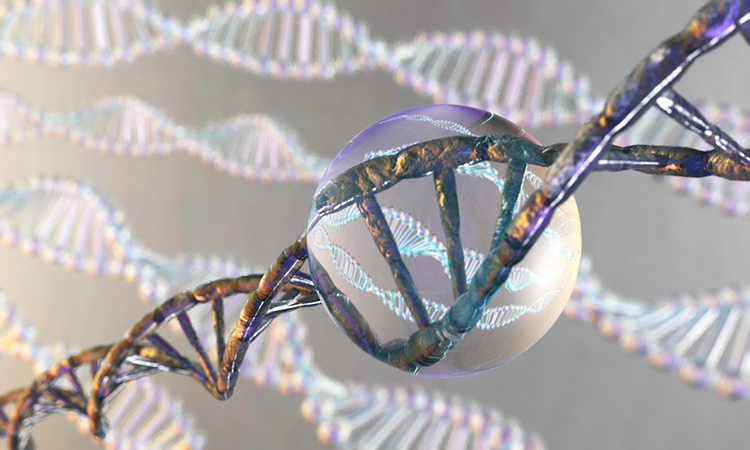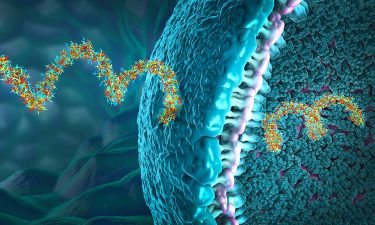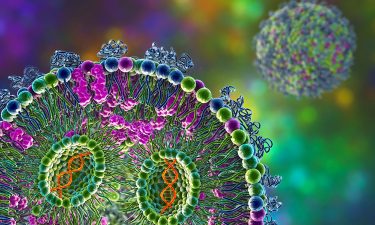RNA processing in health and disease: challenges and opportunities of the field
Posted: 15 June 2023 | Izzy Wood (Drug Target Review) | No comments yet
In this interview, Sam Hasson, Senior Director at Rgenta Therapeutics, shares his journey in drug discovery, from graduate school to industry, and his current work developing small molecule therapeutics to target RNA processing. He discusses the challenges and opportunities in the field of RNA-centric drug discovery and highlights the potential impact of their work in oncology and neurological indications.


In this article Drug Target Review’s Izzy Wood spoke to Sam Hasson, Director of Target Biology at Rgenta Therapeutics, a biotech firm in Massachusetts, US, that aims to develop small molecule therapeutics to target RNA processing. We discussed the challenges and opportunities in the field of RNA-centric drug discovery and the potential impact of their work in oncology and neurological indications.
Hasson’s interest in drug discovery began early in his training, where he was able to work on chemical biology and microplate-based high throughput assays as a graduate student. Interested in a more disease-focused training for his postdoc, he pursued work in the National Institutes of Health (NIH), particularly in the National Center for Advancing Translational Sciences (NCATS), US. In a dual appointment in the labs of Richard Youle and Jim Inglese, Hasson utilised a combination of small molecule chemogenomics and large -scale functional genomics provide new insights into the pathways of mitophagy related to forms of familial parkinsonism. After completing his postdoc, Sam undertook an industrial career in drug discovery, with an emphasis on neurodegenerative diseases, at Pfizer and then Amgen.
Hasson’s current work at Rgenta Therapeutics focuses on RNA biology and developing small molecule therapeutics to target RNA processing for a new generation of therapeutics in oncology and neurological indications. The core of their platform aims to modulate disease-relevant mRNAs that have been previously thought to be undruggable.t. His aims are to seek out the emerging therapeutic opportunities that RNA targets present and to develop effective methods to interrogate the underlying biology. Additionally, Hasson is working to utilise his background in genome editing to increase the ability for Rgenta to discovery effective pharmacology for a variety of new targets.
Reduce preclinical failures with smarter off-target profiling
24 September 2025 | 15:00PM BST | FREE Webinar
Join this webinar to hear from Dr Emilie Desfosses as she shares insights into how in vitro and in silico methods can support more informed, human-relevant safety decisions -especially as ethical and regulatory changes continue to reshape preclinical research.
What you’ll learn:
- Approaches for prioritizing follow-up studies and refining risk mitigation strategies
- How to interpret hit profiles from binding and functional assays
- Strategies for identifying organ systems at risk based on target activity modulation
- How to use visualization tools to assess safety margins and compare compound profiles
Register Now – It’s Free!


Ribonucleic acid strands consisting of nucleotides important for protein bio-synthesis entering cell.
According to Hasson, anything in the RNA world is still in its early days, particularly RNA-small molecule interactions, and optimised methods of selectively drugging RNA biology. Because the field is so nascent, the discovery technology and methodologies available to support small molecule campaigns against RNA targets are lacking. He hopes to contribute to the field by illuminating where there are avenues to engage RNA-related targets that are fruitful for developing therapeutic leads.
The field is faced with a number of obstacles that require specifically assay technologies to surmount. Hasson highlighted that there are relatively few scalable methods of tracking RNA target engagement and profiling the selectivity of small molecule interactions, especially in cells. Hasson pointed out that making observations with purified RNA may not always translate into what you see in a cellular context with small molecules.


Whereas drug discovery for target spaces such as kinases and GPCRs enjoy a long history of pharmacology and collective learnings, the biggest challenge in attempting to find effective drug molecules for RNA processing is that the field is so new.. In the RNA world, you are building the bridge as you are crossing it, explained Hasson.
Future Plans
While in this relatively uncharted area, Hasson outlined the exciting prospects of what RNA biology offers to drug hunters : “Extending from the ground-breaking development of drugs like risdiplam and branaplam, to me, what is exciting now is taking a more holistic view of RNA processing as a drug target surface. . It is somewhat like how PROTACs have changed the perspective on what is a tractable therapeutic target. Beyond splicing, I am optimistic that there are methodologies to build small molecules that achieve potent and selective pharmacology towards this wider RNA biology. . Now, taking that expanded view of the RNA world and saying there are thousands of different aspects of processing that may be specific to given diseases, where else are there disease related phenotypes that we could intervene to bring new medicines to unmet medical needs?”
Author bio:


Sam is currently a Senior Director at Rgenta Therapeutics (Woburn, Massachusetts). His current research aims to develop small molecular modulators of RNA processing, expanding on his previous drug discovery efforts in therapeutic manipulation of pre-mRNA splicing. Before transitioning to Rgenta, Sam has had the opportunity to engage in modalities including AAV-based gene therapy (Voyager Therapeutics), antibody-based neuro-immune modulation (Amgen), and small-molecule neuro-immune modulation (Pfizer/Amgen), all for unmet medical needs in the CNS. He has led groups that focus on the deconvolution of human disease genetics for drug target selection, employing genome editing technologies to enable this process. As a postdoc, Sam trained with Richard Youle and Jim Inglese at the National Institutes of Health where he first realised the potential of genome editing in drug discovery. Sam focuses on the application of innovative assay development strategies to enable to interrogation of complex targets.
Related topics
Oncology, RNAs, Small Molecules, Target Molecule, Targets, Therapeutics
Related organisations
Rgenta Therapeutics
Related people
Jim Inglese, Richard Youle, Sam Hasson








